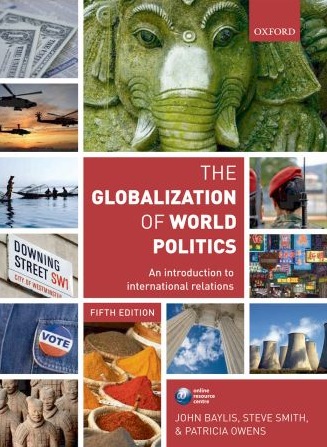


A book review for the Open Textbook Library By Michael J. Provocative and always willing to take on the conventional wisdom, Nyabola emerges with this book as an important observer of contemporary Africa and its position in the world. International Relations, Stephen McGlinchy, ed. The passion, erudition, and fluidity of Nyabola’s writing is attractive, even when the arguments occasionally fail to convince. Best Books on International Relations for UPSC Mains GS II The Globalization of World Politics: An Introduction to International Relations by John Baylis. The book also features a lovely essay about the life and legacy of the South African author Bessie Head, who lived much of her life in exile in Botswana and died in relative poverty. Other essays explore her outrage at European immigration policy and its human cost and the question of whether mobility should be a human right and not just the purview of a small, usually Western and white elite.

Com-prehensive and up-to-date, it introduces the most important themes in international relations, with an emphasis on contemporary issues. She visits Haiti as a volunteer for a human rights group and ruminates on the fact that locals call her “white” because she is foreign and educated. INTERNATIONAL RELATIONS: THE KEY CONCEPTS Featuring 150 entries, International Relations: The Key Concepts is the essential guide for anyone interested in international aairs. Rather, it is aimed at histories of international relations and/or the use of. As Nicolas van de Walle describes in his Foreign Affairs review, Nanjala notes that “it is by leaving home that people find their identity. The award is not intended for books written by disciplinary historians. FPI Fellow Nanjala is always on the go, as a speaker and thinker, from her home base in Nairobi.


 0 kommentar(er)
0 kommentar(er)
